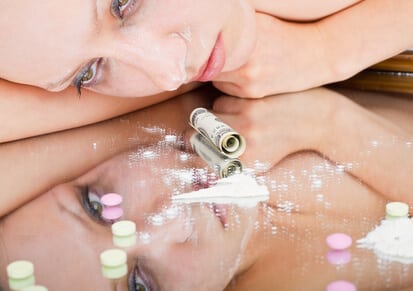
![]()
Since the 1980s, the federal government and state law enforcement agencies have demonized drug users. The “war against drugs” spawned media reports and television shows that depicted all drug users as depraved and all drug dealers as violent, gun-toting thugs.
That public perception lingers, but it is far from the truth.
FOLLOW THE MONEY
Drug warriors have a strong financial incentive to make the public afraid of drug users. The federal Drug Enforcement Administration (DEA) employs more than 10,000 people. About half of those are drug enforcement agents who depend on the “war against drugs” for their livelihood.
The DEA’s annual budget is about three billion dollars. The public would not tolerate such a huge commitment of public resources if it had not been convinced that dangerous drug users threaten to unravel the fabric of society.
The drug units in every state law enforcement agency also rely on exaggerated claims to justify their budgets. They often receive federal grants that allow them to buy new vehicles and advanced weaponry that they would receive in the absence of a war on drugs.
Among the draconian effects of the “war on drugs” are asset forfeiture laws that permit the government to seize property — including expensive homes and cars — that were used in connection with drug law violations. The financial incentive to vilify drug users is huge.
A REALISTIC PERSPECTIVE OF DRUG USERS
The reality is that only a small percentage of drug dealers, and a vanishingly small percentage of drug users, are violent criminals. Many drug users, like many people who drink alcohol, have a problem, but most drug addicts are no more menacing to society than most alcoholics.
Some are responsible members of the community who became addicted to pain medication that was legally prescribed. Some experimented with drugs and were unable to overcome their addictive effects. Some use stimulants like methamphetamine to stay awake and alert for long hours. Some take illicit drugs to compensate for mental health issues.
Others turned to drugs for the same reasons people abuse alcohol: to forget their problems, to overcome depression, to battle loneliness.
The problem of addiction, like the problem of alcoholism, is a public health issue. Addicts suffer from the disease of addiction. That does not make them evil, any more than alcoholics are evil.
Society should respond to those problems with compassion, understanding, and treatment, not with fear and scorn.
NOT ALL DRUGS (OR DRUG USERS) ARE THE SAME
Labeling someone as a “drug user” tells us little about that person’s character. At one point, thanks to the propaganda efforts of the DEA and drug warriors, the public viewed all drugs through the same lens.
Perceptions are starting to change as more states legalize the medical or recreational use of marijuana. The public is beginning to understand that some illicit drugs can be used responsibly, just as alcohol can be consumed responsibly.
To be sure, many drugs are physically addictive while marijuana is not. Yet few drugs are as physically addictive as alcohol. Withdrawing from serious alcohol addiction is more dangerous than withdrawing from addiction to any other drug.
There may be a good reason to regulate addictive drugs — just as there is good reason to prohibit drunk driving and the sale of alcohol to minors — but it is wrong to assume that everyone who uses an addictive drug recreationally will become a drug addict.
Many drug users, like many people who drink alcohol, are able to exercise self-control that permits them to work and to live productive lives.
UNDERSTANDING DRUG DEALERS
Regardless of what you see on television, most drug dealers are not armed. Most are not covered with bling and driving expensive cars that they bought with cash. Rather, many drug dealers sell drugs to support their own drug habit.
If they buy an ounce of cocaine, they keep an eighth-ounce for their own use and make enough money selling the other seven-eighths to allow them to purchase another ounce.
Contrary to what drug warriors tell you, drug dealers do not create demand for drugs. Just like purveyors of alcohol during Prohibition, drug dealers supply a demand that already exists.
Labeling dealers as vile and locking them up does nothing to reduce demand. Only public education and drug treatment can do that.
Demonizing drug dealers and drug users only leads to bloated law enforcement budgets, not to a reduction of harm associated with drug use.
THE DEFENSE LAWYER’S CHALLENGE
Prosecutors, judges, and juries tend to look upon drug defendants with scorn. The defense lawyer’s challenge is to make them look at each defendant as an individual. Many drug defendants have families and jobs.
Many drug defendants have problems in addition to the crime that resulted in their arrest. Making the legal system respond to drug defendants with compassion and understanding rather than stereotyping them is the task of every criminal defense lawyer who handles a drug case.
